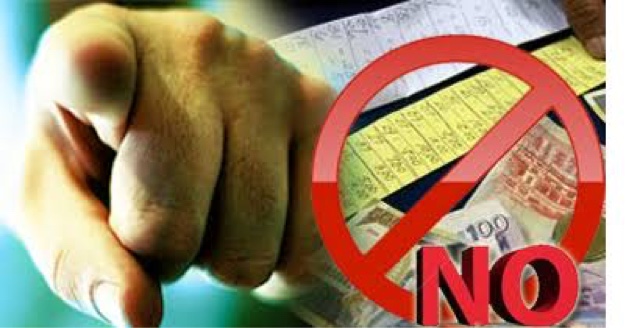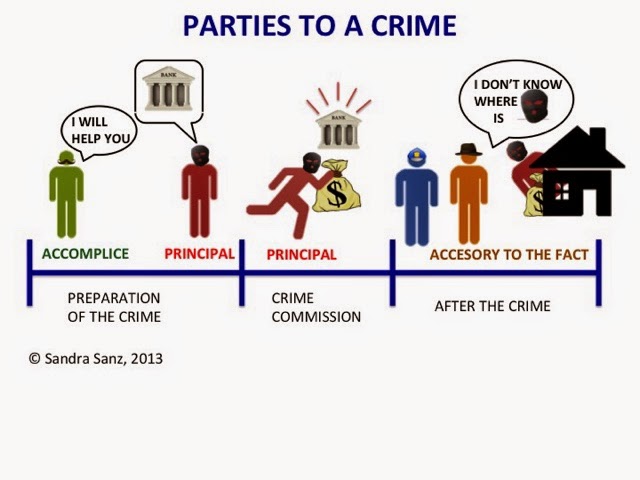On Cedric Lee and Deniece Cornejo's Right to Bail
With the recent development of Vhong Navarro-Cedric Lee-Deniece Cornejo's legal battle, Vhong Navarro appears to be triumphant this early. It was already broadcasted that the rape case filed by Deniece Cornejo against Vhong Navarro was junked by the Department of Justice (DOJ) for utter lack of probable cause. Meaning to say, the DOJ was convinced that Vhong Navarro is innocent and there was no probability based on the evidences submitted by both camps that he did commit the crime charged.
On the other hand, Cedric Lee and Deniece Cornejo (among the persons charged with cases filed by Vhong Navarro) were successfully indicted with Grave Coercion, Serious Physical Injuries and Serious Illegal Detention. Among the three charges, Serious Illegal Detention is not bailable.
But with the prompt action of Lee and Cornejo's camp, the issuance of the warrants of their arrest in Serious Illegal Detention Case was forestalled due to the timely motion for reconsideration. Thus, for the time being, Cedric Lee and Deniece Cornejo could not be arrested.
However, just very recently, the Regional Trial Court of Taguig has issued warrant for the arrest of respondents Cedric Lee and Deniece Cornejo, among others. Thus, authorities are now in the pursuit of arresting those persons listed in the said warrant.
Bail is the security given for the release of a person in custody of the law, furnished by him or a bondsman, to guarantee his appearance before any court as required under the conditions specified by law.
Based on the definition of bail, it is just a security to guarantee the appearance of the accused before any court. It is not necessarily that the bail shall only be posted by the accused himself for the same shall be posted by other person in favor of the accused. The person posting the bond is called a bondsman.
As provided also in the law, bail may be given in the form of corporate surety, property bond, cash deposit, or recognizance. Property bonds and cash deposits are the most common forms of bail posted by the bondsman.
Considering that bail is just a security for the temporary release of the accused, once the case has been terminated, the same shall be released back to the bondsman. It will serve no other purpose once the case has been terminated or disposed with finality.
In the case of Lee and Cornejo, considering that the cases of Grave Coercion and Serious Physical Injuries are both bailable offenses, they have the rights to post bonds for them. This is the right guaranteed to them by law.
All persons in custody shall be admitted to bail as a matter of right, with sufficient sureties, or released on recognizance as prescribed by law or by the Rules of Court (a) before or after conviction by the Metropolitan Trial Court, Municipal Trial Court, Municipal Trial Court in Cities, or Municipal Circuit Trial Court, and (b) before conviction by the Regional Trial Court of an offense no punishable by death, reclusion perpetua, or life imprisonment.
The penalties involved in the crimes of Serious Physical Injuries and Grave Coercion are both Prision Correccional or imprisonment of six months and one day to six years, thus, the cases are bailable.
As what the law provides, the accused have the right to post bail. As of this writing, some of the accused including Cedric Lee and Deniece Cornejo have already posted bonds for their temporary liberties as far as the crime of Grave Coercion is concerned.
No person charged with a capital offense, or an offense punishable by reclusion perpetua or life imprisonment, shall be admitted to bail when the evidence of guilt is strong, regardless of the stage of the criminal prosecution.
Considering that the crime of Serious Illegal Detention has a penalty of reclusion perpetua to death, Cedric Lee and Deniece Cornejo cannot post bail as a matter of right. It is very clear in the provision of the law that when the penalty involves is reclusion perpetua or life imprisonment or death, no person charged with such offense shall be admitted to bail.
Would this be absolute? The provision of the law appears with an exemption. It has a phrase "when the evidence of guilt is strong". What does it mean?
The accused involved will not be admitted to bail only when the evidence of guilt is strong. Thus, the camp of Cedric Lee and Deniece Cornejo has still the last recourse.
What would Lee-Cornejo camp do is the filing of a motion to fix bail. In this proceeding, the prosecution is required to present evidences until the court is convinced that the evidences submitted are either strong or not.
When the court is convinced that the evidences of guilt are strong, then it would deny the motion to fix bail. However, if the court sees that such evidences are not strong, then it would grant the petition and then would fix the bail for the temporary liberties of the accused.
Considering that the crime of Serious Illegal Detention has a penalty of reclusion perpetua to death, Cedric Lee and Deniece Cornejo cannot post bail as a matter of right. It is very clear in the provision of the law that when the penalty involves is reclusion perpetua or life imprisonment or death, no person charged with such offense shall be admitted to bail.
Would this be absolute? The provision of the law appears with an exemption. It has a phrase "when the evidence of guilt is strong". What does it mean?
The accused involved will not be admitted to bail only when the evidence of guilt is strong. Thus, the camp of Cedric Lee and Deniece Cornejo has still the last recourse.
What would Lee-Cornejo camp do is the filing of a motion to fix bail. In this proceeding, the prosecution is required to present evidences until the court is convinced that the evidences submitted are either strong or not.
When the court is convinced that the evidences of guilt are strong, then it would deny the motion to fix bail. However, if the court sees that such evidences are not strong, then it would grant the petition and then would fix the bail for the temporary liberties of the accused.


Comments
Post a Comment